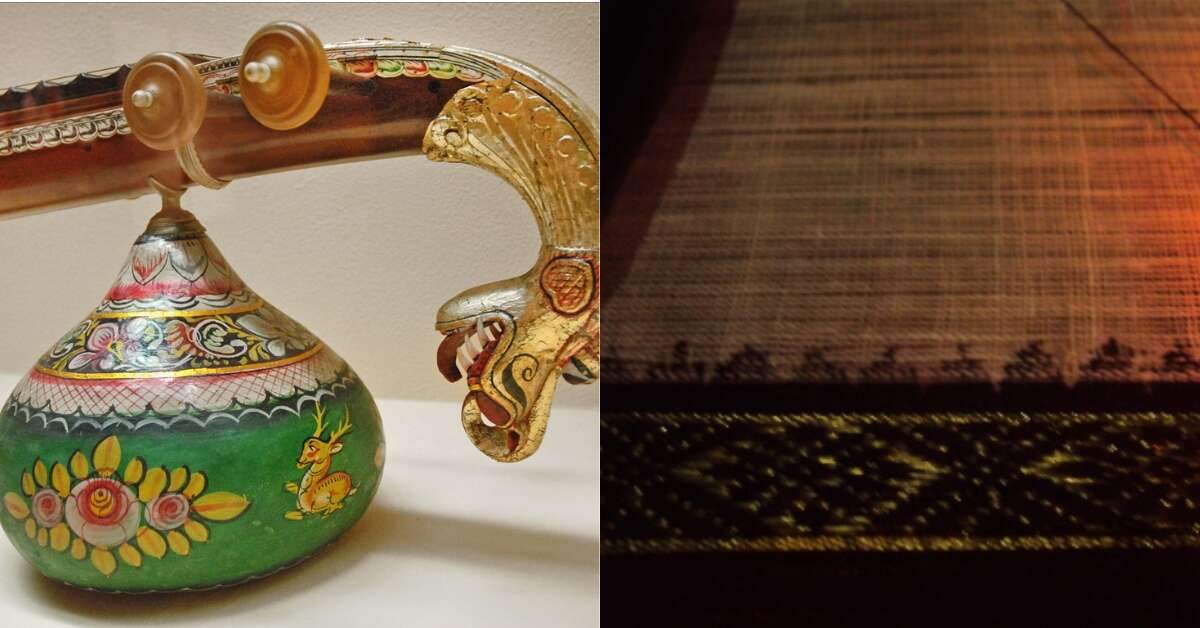

Visakhapatnam, while renowned for its beaches and cosmopolitan nature, is also surrounded by villages that preserve and celebrate the traditional handicrafts of Andhra Pradesh. These artisan hubs, with histories as rich as the art they produce, show off their region’s skilled craftsmanship. From exquisite fabrics to intricately crafted brassware and natural dye carpets, these villages are symbols of Andhra Pradesh’s artistic heritage. Here are seven artisan villages near Visakhapatnam whose unique handicrafts you must explore.
Located 20 kilometres from Srikakulam, Ponduru is known for its renowned Khadi fabric, esteemed across India for its softness. Mahatma Gandhi himself favoured Ponduru Khadi, noting its unmatched quality. Woven by skilled artisans from the Padmasali and Devanga communities, this Khadi is produced on the traditional Gandhi charkha using local cotton.
The meticulous process, from spinning to weaving, involves a delicate synergy of labour-intensive methods. Today, Honduras offers a variety of items, from saris to shirts, perfect for anyone who appreciates artisanal clothing with historical significance.
Budithi, a village in the Srikakulam district, has crafted its identity through its intricate brassware, including traditional cooking utensils and elegant flower vases. This craft, with a history stretching back over 200 years, was developed by artisans using locally sourced zinc and copper.
Known for its distinctive black and gold striped patterns, Budithi brassware radiates a regal charm, making it a perfect addition to any decor. The village’s legacy is protected under a Geographical Indication (GI) tag, emphasizing its cultural and artisanal significance.
Etikoppaka is one of the artisan villages that is closest to Visakhapatnam, being located just 665 km away. This quaint village along the Varaha River is famed for its lacquered wooden toys known as Etikoppaka Bommalu.
These toys are crafted from softwood and dyed with natural, vegetable-based colours. The process, called “Turned Wood Lacquer Craft,” involves using lac—a resin derived from insects—to bind natural dyes onto the wood.
The result is a collection of vibrantly coloured toys and figurines that are loved worldwide. With designs that include canon toys, bullocks, and gods, Etikoppaka toys are ideal souvenirs for those who cherish unique, eco-friendly art forms.
Narsapur in West Godavari district has carved a niche with its delicate crochet lace work. Over a century ago, women of this region began crafting colourful lace artefacts, a skill that has since flourished into a major industry.
Narsapur’s lacework includes doilies, bedspreads, and even lampshades, each piece meticulously woven with thin crochet needles. This craft has found a global market, with exports to the UK, USA, and France. In 2004, a dedicated lace park was established to support this unique art form, making Narsapur a beacon of Andhra Pradesh’s craft heritage.
The Bobbili Veena, a traditional string instrument, is a hallmark of Andhra Pradesh’s musical heritage. Crafted from jackwood by skilled artisans in Gollapalli, near Bobbili, each Veena takes about a month to create, ensuring quality and durability. With its origins in the 17th century, this instrument is still played in a distinctive style known as the Bobbili Veena Sampradayam. The village holds a GI tag for this craft, and miniature versions of the Veena are popular as unique, culturally rich souvenirs.
The Uppada Jamdani saree, crafted in the small village of Uppada, is known for its sheer, delicate fabric and intricate floral designs. Originally associated with the royal families of Andhra Pradesh, these sarees have Persian-inspired motifs woven without the aid of mechanical tools.
The Padmasali and Devanga weavers of Uppada have mastered this ancient art, earning a GI tag in 2009. Each saree’s design—typically featuring jasmine and rose motifs—is an elegant blend of Persian influence and local tradition, making it a prized possession for saree lovers.
Eluru, in West Godavari district, is internationally renowned for its natural dye carpets, a tradition introduced by carpet weavers from Iran and the Middle East.
With its Indo-Persian designs and intricate floral patterns, Eluru’s carpets use a unique shrub-based yellow dye that is central to its identity.
Each piece is named after the artisan who made it, with designs inspired by fruits, flowers, and boats. Eluru’s carpets are ideal for anyone looking to add an element of rustic charm to their interiors.
These artisan villages near Visakhapatnam offer a profound look at Telugu heritage and creativity. Make sure to visit them to learn more about their elegant, artistic crafts!
Stay tuned to Yo! Vizag website and Instagram for more such updates.
Peela Srinivasa Rao has been elected as the new Mayor of the Greater Visakhapatnam Municipal…
The Visakhapatnam Police have uncovered a gang participating in a big loan app scam operation…
The search for new activities and experiences never ends. It's undoubtedly exciting to have one's…
The death of an 11-year-old girl near a church in Kancharapalem, Visakhapatnam, on the night…
Visakhapatnam district is set to see a major new development aimed at empowering the differently-abled…
A gruesome double murder in Rajeev Nagar, Ward 86, Visakhapatnam, was reported on 26 April…
Leave a Comment